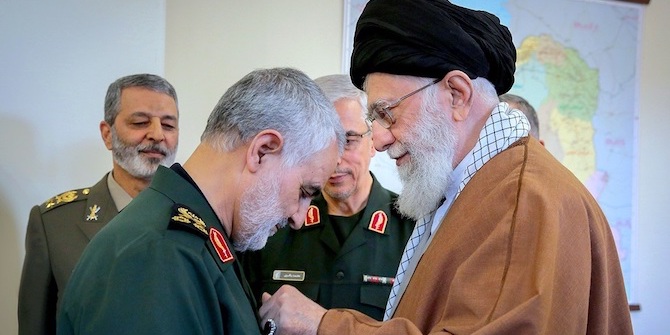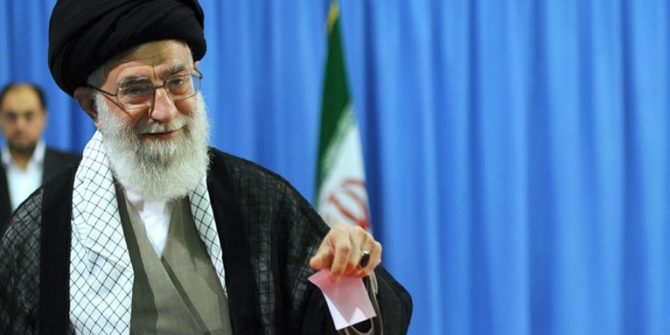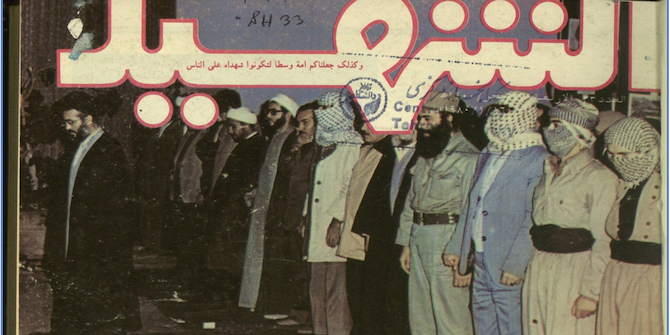by Alireza Shams Lahijani
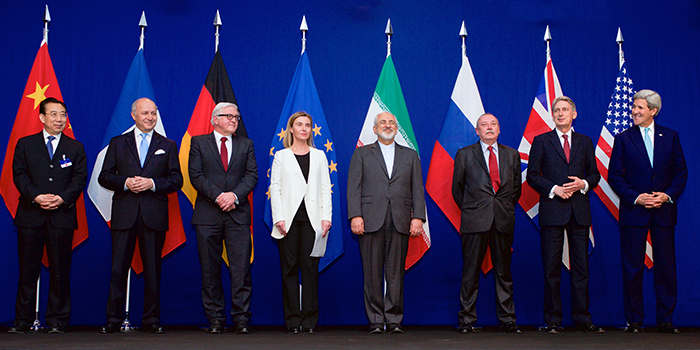
With final steps of sealing the anticipated deal between Iran and the five permanent members of the UN Security Council plus Germany (P5+1) well underway, Iran is preparing to open a new chapter in its foreign relations just as it did in the aftermath of the Iraq-Iran war. What comes next for Iran is the crucial moment in its foreign policy history, and political memory: to end a crisis, open new horizons and to unload (or increase) historical baggages.
Iran and the P5+1 have until June 30 to finalise the agreement and start implementing it. Iran regards such deal not just as a way to settle disputes on its nuclear programme, preserve its interests and rights, and to remove sanctions, but also as a blow to anti-Iranian campaign and approach that hyped Iran as a threat rather than a solid regional power with the potential to contribute to peace and security in the region.
The quality of verification and enforcement provisions are essential to asses the success of the deal, but the political will to avoid returning to patterns of missed opportunities and have a viable relationship with Iran based on mutual interest and mutual respect is even more vital. No amount of verification and oversight could trump goodwill and political determination to open a new chapter. That same political will which, until now, has limited forces against the deal and negotiations. Successful implementation of the deal offers a path for significant improvements in Iran’s relationship with the West, notably the United States.
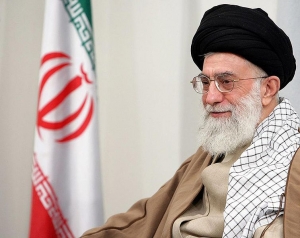
It is rather far-fetched to expect outright normalisation of ties between Iran and the US. The deal is rather an opportunity for the US to change Iran’s perception of itself. It is also an opportunity for Iran to prove that no one should fear diplomacy but should instead engage with Iran based on mutual understanding and the essential discourses of not just the Islamic Republic’s but Iranian way of life: independence and dignity. President Obama has given diplomacy a chance but if this or the next American administration decides to renegade on the agreement, then escalation will be the name of the game. Otherwise, as the deal could prove, a framework might emerge within which Iran and United States manage their differences and avoid confrontation. Even Iran’s Supreme Leader did not rule out the possibility of future negotiations. ‘If the other side stops its usual obstinacy, this will be an experience for us and we will find out that we can negotiate with [United States] over other matters as well’, Ayatollah Ali Khamenei said on April 9.
The rest of the Western countries are facing slightly different opportunities. Historical mistrusts and difficulties between Iran and Europe are less significant than the ones with the US. The implementation of the deal would roll-back Iran-EU relations to their former business-like relations of the 1990s, and failure, again, would lead to escalation as it did in the aftermath of the lack of progress in the Iran-EU3 negotiations on the nuclear programme. Whether Iran and the EU decide to resume their unfinished business by pursuing constructive dialogue on a wide range of issues such as trade or human rights, depends on how fast the element of trust returns to the bilateral relations after the deal.
With Iran and the P5+1 delivering on a deal, emerging horizons unlock Iran’s potential to prioritise foreign policy issues without the threat of warmongers and sanctions. A crisis-ridden Middle East would be Iran’s first priority. Iran should, and possibly would, escalate its regional attempt to have a regional detente. On Saudi Arabia, Iran would be willing to reach an understanding as it did in the years after the Iraq-Iran war. While Saudi Arabia’s strict rebuttal of Iran’s overture since Hassan Rouhani’s election darkens the prospect of reconciliation, it is promising that the same people who worked for the security arrangement in 1997 are still pursuing it in Iran today. It would then be up to Saudi Arabia to either ignore noises and be receptive to Iran’s official voice, or to continue on the current path. The timing of the Saudi-led intervention in Yemen is hard to be analysed in any way other than attributing it to the prospect of a deal between Iran and P5+1 and how it affects their perception of Iran’s role in the region.
While a handful of countries such as Turkey, Oman, Iraq and Algeria welcomed the outcome of the Switzerland negotiations, Iran needs to be mindful of the delicate rebalancing of power led by regional actors and the US who would attempt to contribute to tilt the balance against Iran, for example through last week’s GCC-US summit in Camp David where the United States pledged more military aid to countries of the Persian Gulf. One might think that with established trade relations and more receptive officials in the UAE, Kuwait and Qatar, easing tensions with these countries would be easier. However, the current trajectory of [Persian] Gulf Cooperation Council countries led by Saudi Arabia undermines such thinking. Oman might even be asked by Iran to play a role in bridging differences between Iran and neighbouring countries, as it did vis-a-vis Iran and the US on nuclear issue. Zarif’s numerous consultations with Oman to discuss the situation in Yemen fuelled rumours on the Omanis’ role in mediating a potential solution in Yemen.
Iran’s relations with Russia and China are growing notwithstanding the nuclear deal. The deal and its economic ramifications would only strengthen the existing trade relations. Iran’s relations with these powers, alongside India, suggests that it is not choosing between West and East, as was the case during some era of its foreign policy, but that it decided to pursue both concurrently. Special attention should be devoted to Iran’s new focus on Central Asia and on how Rouhani and Zarif are vigorously discussing economic relations and capitalising on cultural and ideational relations between Iran and Central Asian countries.
In the press release jointly read by Iran’s Foreign Minister and High Representative of the European Union for Foreign Affairs on behalf of the P5+1, the prospect of international cooperation and ventures in Iranian nuclear programme were noted. International cooperation is an issue that Zarif, both as a diplomat and as a scholar, is keen to expand on; whether it is international economic cooperation or political ones, or simply to contribute towards norm-setting and international agenda. In fact, one of the aims to defeat the ‘anti-Iran campaign’, as dubbed by Zarif, is to advance its ‘assertive’ participation at international organisations and ‘in coalitions with like-minded states to promote peace and stability.’
Based on current parameters set for the deal between Iran and the P5+1, the International Atomic Energy Agency (IAEA) would play an active role during the implementation of the deal. Such role is welcomed as a sign of possible expansion of Iran’s ties with international organisations. However, the IAEA could also cause the implementation of the deal to fail. In the past, Iran has accused the agency of facilitating espionage on Iranian infrastructure and of being influenced by politics rather than technical expertise. With a successful implementation of the deal, Iran would cash on the credit gained as a responsible state with a civil nuclear programme to campaign for a Middle East nuclear weapon free zone and to promote regional cooperation on nuclear issues, as head of Iran’s Atomic Energy Agency Ali Akbar Salehi hinted to a few times.
The deal, if it were to be sealed by June 30, is the result of the P5+1 and Iran’s attempts to address mutual concerns while having better understanding of each other and creating a paradigm shift in their multilateral and bilateral relations. Iran would pursue the same outcome in other areas of foreign policy, most importantly within the Middle East, to be a solid regional power. This task is not just Iran’s; other countries should start showing their willingness to move away from the crisis and break the existing paradigm and perceptions which only fuel enmity. Iran under a deal could play a bigger role in defusing tensions and pursuing constructive engagements to prudently manage its foreign affairs: it is the natural evolvement of the Islamic Republic’s diplomacy in its 36th year.
 Alireza Shams Lahijani is a researcher of Iranian foreign policy and the Iraq-Iran War. He graduated from the Department of International Relations at LSE in December 2014. He tweets at @ashamsla.
Alireza Shams Lahijani is a researcher of Iranian foreign policy and the Iraq-Iran War. He graduated from the Department of International Relations at LSE in December 2014. He tweets at @ashamsla.



